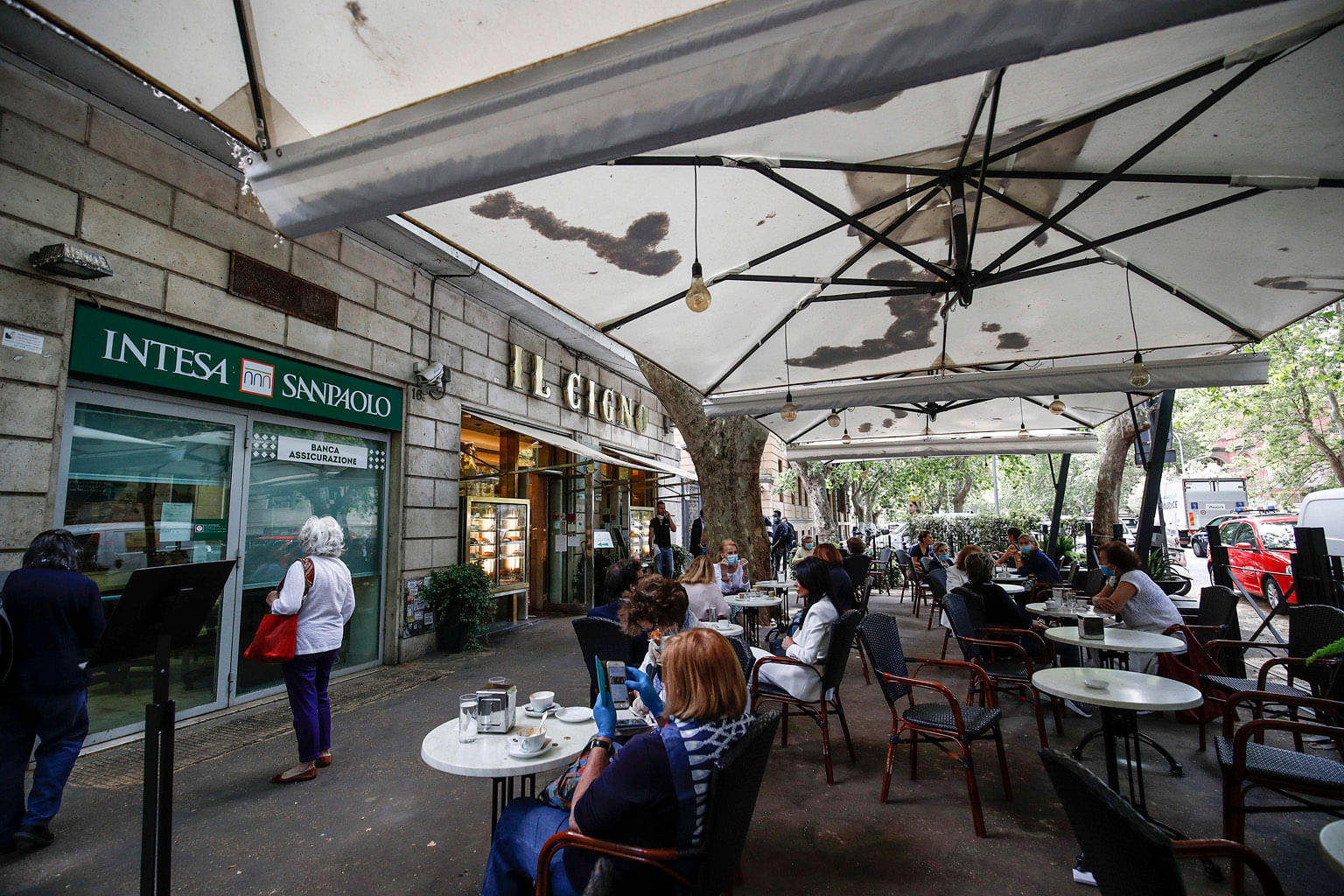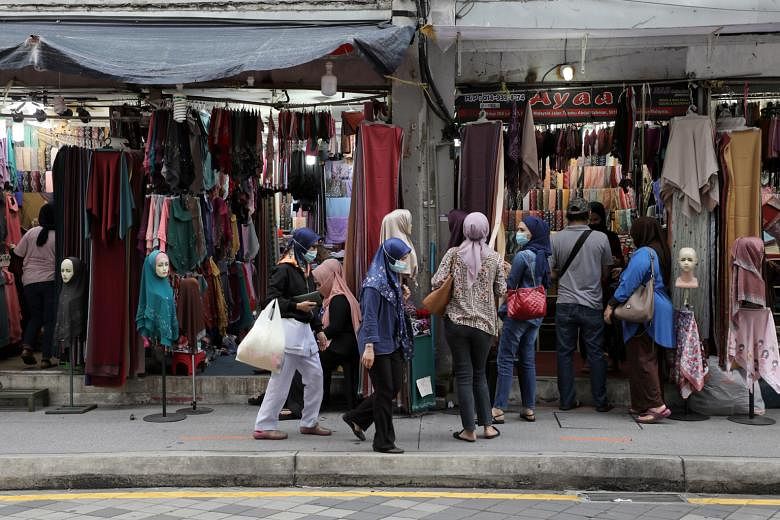Countries around the world are easing pandemic restrictions in stages, like in Singapore.
The World Health Organisation has advised countries to wait at least two weeks to evaluate the impact before taking further action.
Some like China and South Korea face renewed concerns after new infections surfaced with the easing of restrictions.
CHINA
After several provinces reported no new coronavirus cases for weeks, China loosened its restrictions for people to return to work and shops to reopen from March, albeit with strict social distancing measures.
By May, restaurants were allowed to open to serve groups of diners and many stores across provinces reopened, though big brands such as Ikea and Apple had restrictions on crowds.
After two months of lockdown, healthy residents in hard-hit Hubei were allowed to leave the province from March 25. The provincial capital Wuhan, the epicentre of China's outbreak, lifted its clampdown on April 8 after 76 days.
Provinces and cities are reopening universities, schools and kindergartens in a staggered manner, and big cities are trying to pre-emptively test those returning to work.
But foreigners, even those with long-term visas, are still largely banned from entering China amid worries about imported cases.
The country has been on edge after new cases emerged. Dozens of cases have been reported in the past two weeks in the north-east provinces of Jilin, Liaoning and Heilongjiang. This triggered renewed lockdown measures over a region of 108 million people.
Wuhan last reported a cluster of six cases over the May 9 to 10 weekend, which led to the authorities ordering nucleic acid tests on all its 11 million residents. A new case was reported on Monday.
China has reported 82,965 cases of Covid-19 and 4,634 deaths so far.
SOUTH KOREA
Strict social distancing rules were lifted from May 6, allowing public facilities such as parks, museums, libraries and sports centres to reopen. The government introduced the newly coined "everyday life quarantine", reminding people to take precautions such as keeping a 2m distance from other people.
But a new case soon emerged: A man who visited several clubs and bars in the nightlife district of Itaewon in Seoul. The number of cases in the Itaewon cluster had grown to 196 as of noon yesterday.
The fresh outbreak forced officials to delay on-site classes in schools. Starting with high school seniors, schools have now begun reopening in stages from yesterday to June 8 for all 5.5 million elementary, middle and high school students.
The authorities have no immediate plans to reinstate the strict social distancing rules, but new precautions have been introduced, such as requiring people to wear face masks during peak hours on the subway.
South Korea now has 11,110 cases of the coronavirus, with a death toll of 263.
MALAYSIA
It first imposed movement curbs on March 18, under which schools and non-essential businesses were shut, and people were confined to their homes except for essential tasks.
The controls were eased on May 4, allowing most businesses to reopen and people to travel for work. But schools remain shut and large gatherings are still banned.
The annual mass exodus to home towns, or "balik kampung", ahead of the Hari Raya Aidilfitri celebrations will not be allowed, nor will large open house events. Similar restrictions apply to other upcoming festivals, including Gawai and Kaamaatan.
But the government allows small gatherings of up to 20 people for the festive celebrations, even as it extended the conditional movement control order on May 10 for another four weeks to June 9.
Malaysia reported 31 new cases yesterday, taking the total to 7,009. The fatality toll remains at 114.
UNITED STATES
After weeks of lockdown, all states are allowing various degrees of reopening to address the economic devastation that has seen 30 million jobs lost.
Federal guidelines call for a 14-day decline in cases before a phased comeback, but Texas is going ahead even though cases of Covid-19 have gone up.
Under phase one of Texas' reopening from May 1, restaurants, museums, beaches and shopping malls were permitted to reopen, but at 25 per cent of their normal capacity. Hair, tanning and nail salons reopened on May 8.
In south Florida, phase one excludes hotels, bars, night clubs, gyms, cinemas and massage parlours. Restaurants can open only to 50 per cent of their capacity, and all clients and staff in stores that do re-open have to don masks.
New York state, the epicentre of the US outbreak, staggered the reopening of its 10 regions.
The pandemic has afflicted the US more than any other country, with more than 1.5 million infections and over 93,600 deaths.
ITALY

It was the first country to go into a full lockdown over two months ago, with restrictions such as a ban on walking or exercising more than 200m from home.
Early this month, some restrictions were relaxed, and people are now able to travel for longer distances and visit their relatives in small numbers.
Bars and restaurants have reopened, but with limits on the number of diners and tables placed further apart.
From June 3, travel between regions in Italy will be allowed, and visitors within Europe's Schengen zone will be allowed to enter Italy with no obligation to self-isolate.
Italy reported over 226,000 cases of the virus, with more than 32,000 deaths.
STRAITS TIMES ARCHIVES, REUTERS, AGENCE FRANCE-PRESSE











